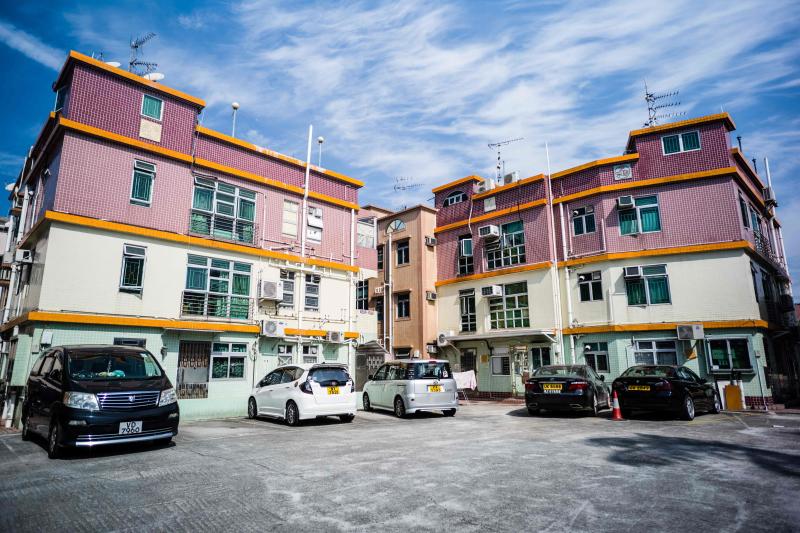Hong Kong urged to call time on 'archaic' indigenous land policy
Sign up now: Get insights on Asia's fast-moving developments

The Hong Kong government's small house policy, introduced in 1972 to improve living conditions of indigenous inhabitants in Hong Kong's rural New Territories, allows male residents to build a three-storey home without paying a hefty land fee.
PHOTO: AFP
Follow topic:
BANGKOK (REUTERS) - Hong Kong must end a discriminatory land policy that favours indigenous men, land rights campaigners said on Thursday (April 11), after a top court upheld a minor law that has long been criticised for exacerbating the city's chronic housing shortage.
The government's small house policy, introduced in 1972 to improve living conditions of indigenous inhabitants in Hong Kong's rural New Territories, allows male residents to build a three-storey home without paying a hefty land fee.
Land rights activists had sought a judicial review of the policy and argued that it was unconstitutional because it discriminated against indigenous women and non-indigenous people.
But earlier this week, the Hong Kong High Court ruled that the entitlement - known as Ding rights - is a "traditional" right that cannot be challenged on grounds of discrimination or being unlawful.
The law is not an "automatic entitlement", however, and will now apply only for homes built on private land, it added.
"It is an archaic policy that was formed under a colonial context, and has become a profitable business for some indigenous villagers," said Mr Brian Wong of advocacy group Liber Research Community.
"Such discrimination is not justified. It has exacerbated the uneven distribution of land resources in Hong Kong," he told the Thomson Reuters Foundation.
Property prices have more than doubled in Hong Kong in the last decade due to limited housing supply and large flows of capital from mainland Chinese buyers.
Under the small house policy, rights to build more than 42,000 houses have been granted. Of these, at least a quarter were sold to non-indigenous people after construction, a survey by Liber Research Community showed.
The city of 7.4 million people aims to increase the number of affordable flats by allocating more new land to public housing. But analysts said it would take years for many of the government's measures to increase land supply.
While the rest of the city scrambles for space, more than 5,000 hectares of land has been allocated for small houses under the policy, Mr Wong said.
Hong Kong's leader, Ms Carrie Lam, estimates the city needs another 1,200 hectares, or about 12 square kilometres, and has proposed a controversial plan to create new land offshore, which would cost up to US$64 billion (S$86.6 billion).
Hong Kong is not short of land, and only needs better land-use planning, which cannot be done with laws such as the small house policy, said Mr Paul Zimmerman, chief executive of Designing Hong Kong, an urban think tank.
"The policy creates infinite rights for building houses on finite land resources, and exempts them from various building and planning regulations," he said.
"The ruling provides an opportunity to change the unsustainable policy. The government must use this opportunity to do so."

